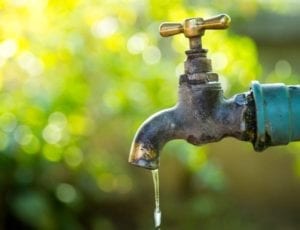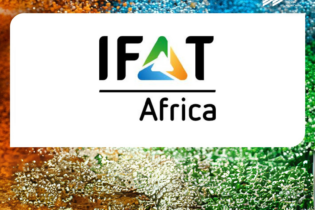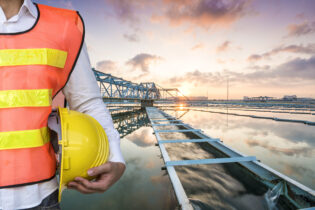Water and Sanitation Minister, Senzo Mchunu, has noted, with great concern, the outbreak of Cholera in Hammanskraal and conveys his condolences to families who have lost their loved ones due to the outbreak.
Mchunu also wishes a speedy recovery to those who have tested positive and are currently receiving treatment in various medical facilities. The Hammanskraal community under the City of Tshwane Metropolitan Municipality has been experiencing unreliable and poor-quality potable water supply for an extended period, despite the upgrade of the Temba Water Treatment Plant, to a capacity of 120 megalitres a day (ML/d). The poor water quality is caused by the failure of the Rooiwal Wastewater Treatment Works to meet the desirable final effluent quality for discharge to the Apies River, which in turn, flows into the Leeukraal Dam. The Wastewater Treatment Works is situated upstream of Hammanskraal and has affected the Leeukraal Dam, where the Temba Water Treatment Works abstracts water for treatment and distribution to residents as potable drinking water. T his has over the years, led to the Department of Water and Sanitation instituting a series of enforcement actions (directives) and compliance requirements against the City, for the City to address the pollution from the Rooiwal Wastewater Treatment Works into the Apies River and Leeukraal Dam. After the City failed to respond to the Department’s directives, a legal process was instituted against the City by the Department, with the aim of obtaining a court order to force the City to address the failure of the Rooiwal Wastewater Treatment Works. This legal process is currently underway and to date, the City has opposed the legal action. The Department had also directed the City to stop supplying water from the Temba Water Treatment plant to residents of Hammanskraal for human consumption. The City is currently providing potable water to affected communities that were initially supplied by the Temba Water Treatment Plant, through deployment of water tankers. In 2021 the South African Human Rights Commission (SAHRC) produced a report: “Gauteng Provincial Inquiry into the Sewage Pollution of the City of Tshwane’s Rivers and the Roodeplaat Dam”, which recommended, amongst others, that the National Government should take over the water and sanitation function of the City in terms of section 139 (7) of the Constitution, section 63 of the Water Services Act, 1997, and section 19 of the National Water Act ,1998.The SAHRC recommendations were rejected by the City. The Department engaged with National Treasury for funding for the intervention recommended by the SAHRC, but National Treasury indicated that the City had already been provided with funding for the rehabilitation and upgrading of the Rooiwal Wastewater Treatment Works, through its Urban Settlements Development Grant (USDG) allocations.
Consequently, the Department is pursuing legal action against the City for a court order to force the City to use its USDG allocations to rehabilitate and upgrade the Rooiwal Wastewater Treatment Works. In response to the current Cholera outbreak, the Department has extended the scope of the prior existing technical team of experts in water services and regulations to work on an integrated model to address the current outbreak. The technical team from the Department will work directly with the national and provincial Departments of Health and the City of Tshwane, to assist with matters such as water quality investigations from source, taps, stationary tanks in some households and identifying the causes of the disease outbreak. The technical team will further extend the intensive assessment of the various water supply systems from Magalies and Rand Water Boards to confirm the current drinking quality standards. The Department has recently, confirmed that the dual water systems supplied by Magalies and Rand Water meet the drinking water quality standards, as per the South African National Standards (SANS) 241. Further, the Department has been continuously carrying out water quality tests at the Temba Water Treatment Works and at water distribution points in Hammanskraal; the latest tests indicate that the drinking water quality from the Temba Water Treatment work does not meet minimum drinking water quality. The water quality challenges are therefore, in central Hammanskraal, from water supplied by the City. As immediate action, the Minister has deployed the Deputy Ministers, David Mahlobo and Judith Tshabalala and senior managers of the Department to work with the Gauteng MEC for Health to ensure that work is being carried out effectively. The Minister will be meeting with the Mayor of Tshwane, Cllr Cilliers Brink before 26 May 2023, with the aim of agreeing on the action plan with timeframes, which the technical team would have developed over and above the current intervention support. Amongst others, the action plan will address how the City of Tshwane will rehabilitate and upgrade the Rooiwal Wastewater Treatment Works to the required production of drinking water quality standards. A joint task team between the Department and the City will then be re-affirmed to oversee the works with continuous reporting to the Minister.






